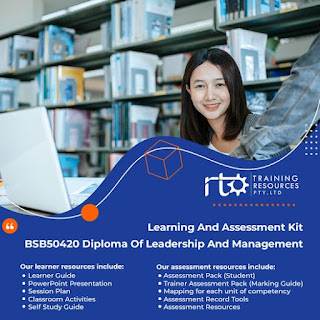Mastering Contextualisation for RTO Training Resources and Assessment Tools
Registered Training Organizations (RTOs) play a vital role in empowering individuals with the necessary skills to excel in their chosen careers within the dynamic landscape of vocational training. Central to the success of any RTO is the effective use of training resources and assessment tools. However, simply having a wealth of resources at your disposal is not enough. To truly empower learners and ensure their success, RTOs must master the art of contextualisation.
Understanding Contextualisation
Contextualisation goes beyond the mere provision of generic training materials. It involves tailoring resources and assessment tools to meet the specific needs and circumstances of learners. By incorporating real-world examples, industry-specific scenarios, and practical applications, RTOs can bridge the gap between theoretical knowledge and practical skills. This approach not only enhances learner engagement but also fosters a deeper understanding of the subject matter, making learning more meaningful and impactful.
The Benefits of Contextualisation for RTO Assessment Resources
Relevant and Practical Learning
Contextualised assessment resources allow learners to grasp how theoretical concepts translate into real-world situations. By presenting relevant examples and case studies, RTOs can facilitate a deeper understanding of the subject matter and encourage learners to apply their knowledge in practical scenarios.
Increased Learner Engagement
When learners can relate to the content, their motivation and engagement soar. Contextualisation piques their interest by making the training materials relatable and applicable to their personal and professional lives. This leads to higher retention rates and a more active participation in the learning process.
Enhanced Skill Development
Contextualised assessment resources provide learners with opportunities to develop and refine their skills in a realistic context. By simulating workplace scenarios and challenges, RTOs can better prepare learners for the demands they will face in their chosen careers. This not only boosts their confidence but also equips them with the practical skills necessary for success.
Strategies for Mastering Contextualisation
Industry Collaboration
Establishing partnerships with industry experts and employers allows RTOs to gain valuable insights into the current trends and demands of the job market. By integrating industry-specific examples and case studies into assessment resources, RTOs can ensure their training remains relevant and aligned with the needs of employers and learners alike.
Personalisation
Recognising that learners have different backgrounds, experiences, and learning styles, RTOs can employ personalised approaches to contextualisation. By considering the unique needs of each learner cohort, RTOs can tailor their assessment resources to better resonate with diverse audiences, enhancing overall learning outcomes.
Real-World Application
Incorporating practical exercises, simulations, and workplace scenarios in assessment resources allows learners to practise and apply their knowledge in a realistic context. This hands-on experience enhances their problem-solving skills and prepares them for the challenges they will encounter in their professional journeys.
RTO Assessment Resources
Mastering contextualisation is the key to unlocking the full
potential of RTO assessment resources. To fully embrace this approach, RTOs can
create engaging and relevant learning experiences through the help of RTOTraining Resources. In that way, RTOs can pave the way for a new era of
vocational training, where learners are empowered to thrive in their chosen
careers.




Comments
Post a Comment